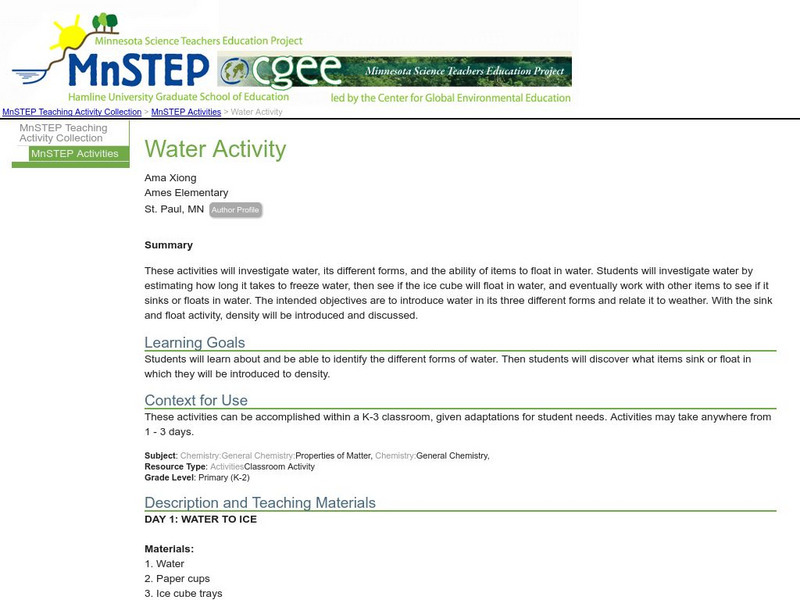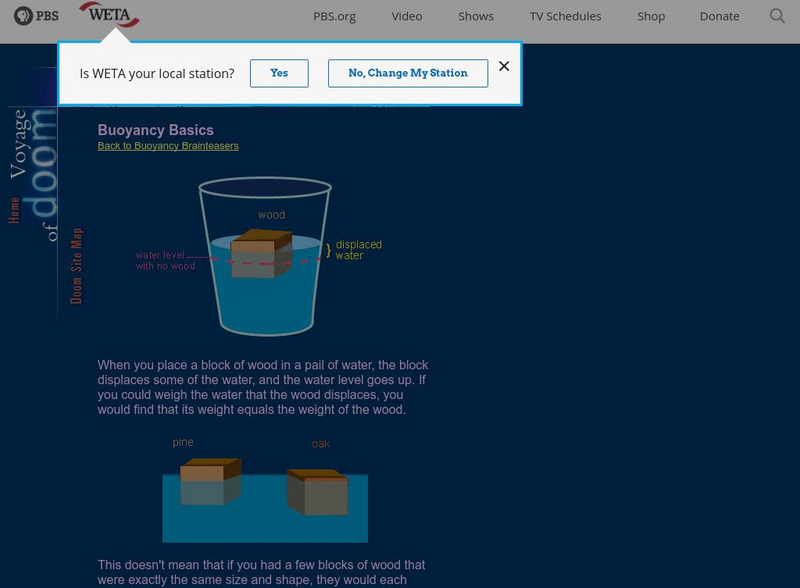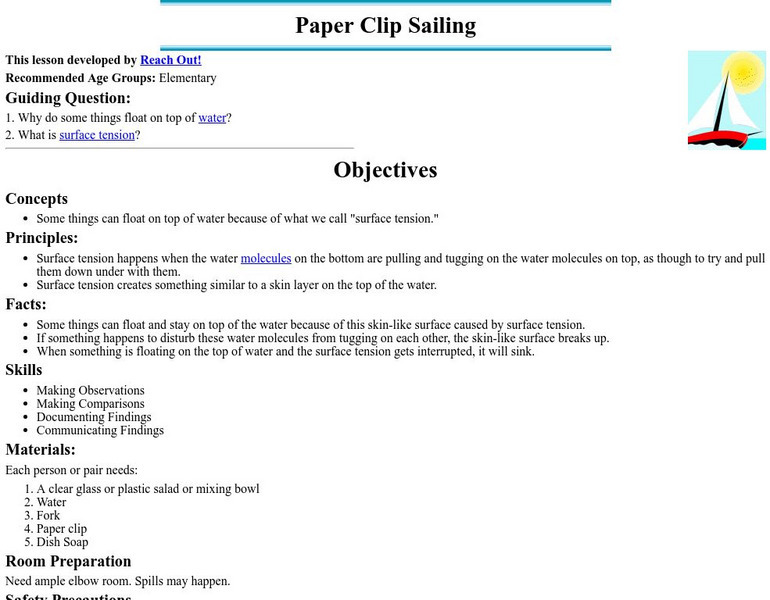Hi, what do you want to do?
PBS
Pbs Learning Media: Sesame Street: Sink or Float Educator Guide
This is an educator's guide for a unit on things that sink or float. It includes lesson plans, experiments, and activities. Young scholars apply the scientific method as they investigate whether objects sink or float.
My Science Site
Density Demonstration: Coke vs. Diet Coke [Pdf]
Help students brainstorm and find a solution as to why Diet Coke floats and Coke sinks. Student will learn to define what density is as they engage in this creative lab. This resource is in PDF form; requires Adobe Reader.
Science Education Resource Center at Carleton College
Serc: Water Activity
Students investigate water by estimating how long it takes to freeze, then see if the ice cube will float in water, and eventually work with other items to see if they sink or float in water.
Museum of Science
Museum of Science and Industry: Online Science: Design a Submarine
Become an engineer, and design a submarine that moves in the water like a real submarine. Try making it sink, float, and hover in the water.
PBS
Pbs: Buoyancy Basics
NOVA explores the basic principle of buoyancy. Also included at this site are some interesting brain-teasers related to the topic.
Bill Nye
Bill Nye: Eggs Speriment
Try this at-home science experiment to learn if salt affects the way things float.
PBS
Pbs Teachers:mysteries of the Deep: Leaky Seal
Investigate the mystery of the sinking of the Confederate submarine Hunley. Explore the mechanics of waterproofing a seal, and compare and contrast the effectiveness of a metal-to-metal seal versus one that uses a rubber gasket.
Michigan Reach Out
University of Michigan: Paper Clip Sailing
Basic experiment that helps students learn about surface tension.
PBS
Pbs Teachers: Scientific American: Beneath the Sea: Blowing Ballast
Explore the use of ballast to manipulate buoyancy in submarines by building a model of a submersible using two-liter bottles and balloons. Describe the balance of forces that is responsible for the surfacing and diving of submersibles.











